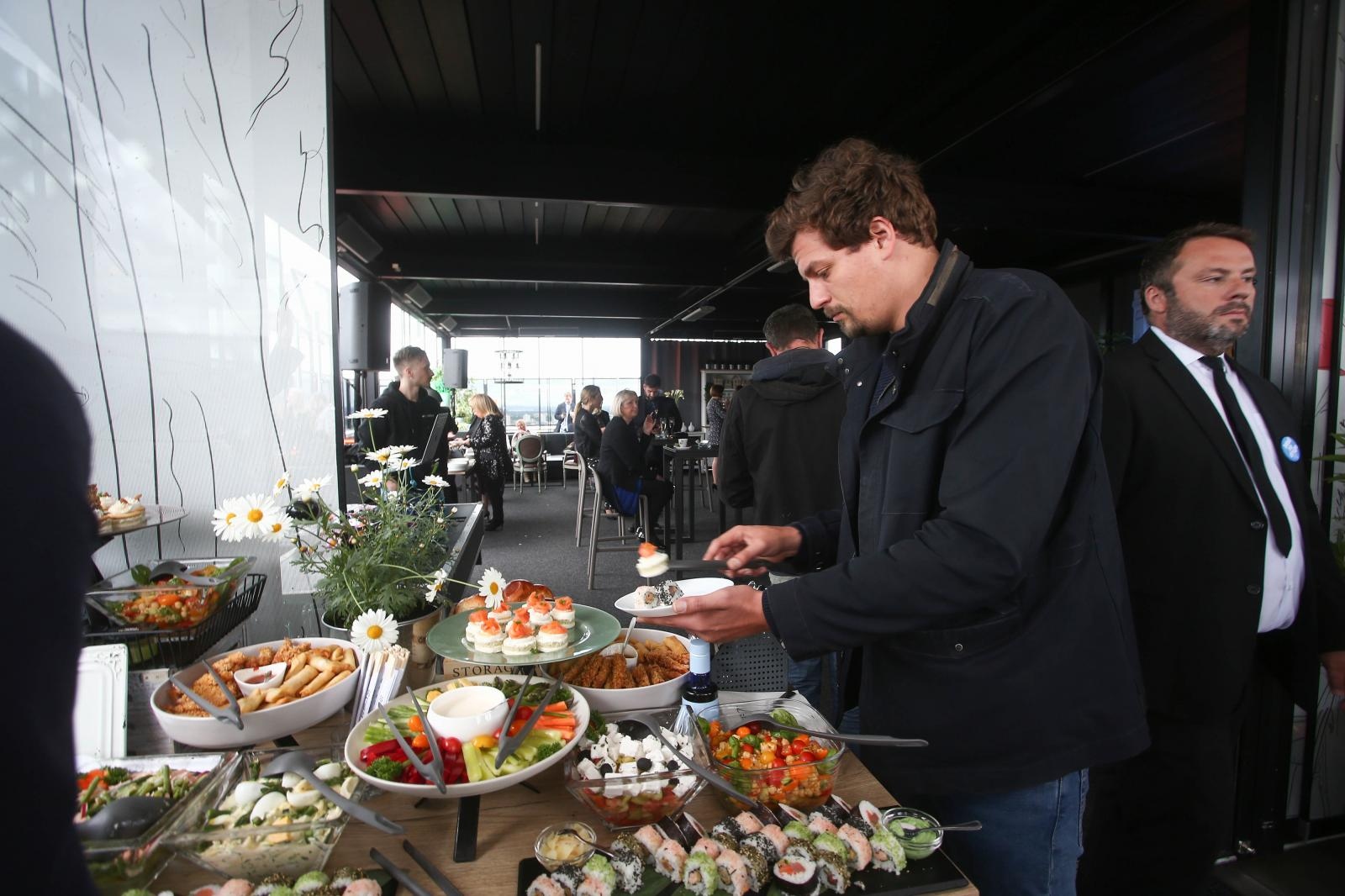Last night, the first pilot project of a private business event in Zagreb was held, reports HRTurizam.
This is the first event in Croatia, which aims to prove that the event is safe and, in fact, represents a step towards the old normal. About ninety guests gathered to participate in this kind of research. The initiator of the project is the Independent Association of Caterers, with the great support of the Croatian Civil Protection Headquarters and the Croatian Institute of Public Health.
The President of the Association, Žakline Troskot, points out that the project has been prepared since March this year and they are very proud that their idea has been realized. All participants have been vaccinated twice, and after a week, they will undergo testing. “If the results are favorable, catering will return to normal soon, as well as other related industries, which have suffered great losses since some of them have been closed for 15 months,” said Troskot.

Matija Habljak / PIXSELL
Croatian Institute of Public Health epidemiologist, Ph.D. Dijana Mayer emphasized the importance of vaccination because a large percentage of vaccinated citizens will greatly simplify life and enable events to take place and much greater mobility of people.
Epidemiological constraints have made life difficult for many, and a particularly vulnerable group is the hospitality industry. The decline in turnover in the hospitality industry in the first four months of 2021 compared to the same period in 2019 is 55.5%.
The event industry has been declining by 90% since the beginning of the pandemic. Last year alone, more than 100 festivals were canceled, attracting about a million visitors from all over the world to Croatia every year. Namely, according to Unison’s research, this industry accounts for 6.3% of Croatia’s GDP and employs about 17,000 people. Only 50-60% of companies and employees involved in events until the pandemic will remain.

Matija Habljak / PIXSELL
Many newlyweds dream of lavish weddings with live music, which they have not been able to hold in the last 15 months. Provisional statistics from the Central Bureau of Statistics show that the restriction of gatherings has greatly affected the holding of wedding ceremonies.
Often unpredictable circumstances in 2020 influenced couples and their decision to hold wedding ceremonies and, in general, enter into a marital union. Data for all 12 months show that in 2020 the total number of marriages decreased by 22.9% compared to the previous year, i.e., 4,972 fewer marriages were concluded. In Croatia, we have more than 300 catering houses and about as many wedding halls. The sector employs more than 12 thousand people, which makes this figure twice as high when we consider the whole range of related activities involved in organizing a wedding, from planners, decorators, florists, musicians, photographers, and others.
On Saturday, the second pilot project will be held in Zagreb’s Riverside Golf Club – a simulation of a wedding ceremony with a live performance by a band, which is expected to have more than 100 participants. Unlike the first, three groups of guests are participating in Saturday’s event – vaccinated, tested (the day before at the CNIPH), and people who have already recovered from COVID-19.
Like the first group, the guests from the wedding ceremony will be tested a week after the event. The favorable outcome of both tests will certainly be a step towards the old normal and the possibility of opening catering and other industries while respecting certain conditions defined by the Civil Protection Headquarters of the Republic of Croatia.
Minister of Health Vili Beroš reported on Thursday at the 57th session of the Government of the Republic of Croatia that almost 29 percent of the adult population has been vaccinated with one dose and eight percent with both doses of the Covid-19 vaccine.
A total of 1,571,650 doses of vaccine have arrived in Croatia so far, and more than 1,230,000 doses have been consumed since the beginning of vaccination, said Beroš, adding: “We are recording a promising trend of fewer newly infected people.”
Deputy Prime Minister Božinović announced a possible easing of epidemiological measures as of June 1.
“Given that the number of coronavirus patients has been declining in recent days, appropriate preparations are being made for a possible easing of epidemiological measures from June 1, so pilot projects of various events will be implemented in the coming days,” Božinović said.
One week after the events, participants will be tested by PCR tests at the CNIPH, and if it turns out that there was no transmission of the infection, ways to relax measures for such events will be considered, Božinović said.
Božinović reported that Croatia was the first member of the European Union to successfully conduct a pilot test of the digital green certificate system, the so-called Covid passport.
“AKD (Agency for Commercial Activity), which is in charge of developing the technical solution, successfully performed testing with a central digital gateway, and it was confirmed that all key components of the Croatian system are functional and ready to start issuing certificates announced for early June,” he said. Božinović added that the system successfully generates QR codes for all three types of certificates – on vaccination, testing, and recovery, and the exchange of public keys with other member states through the EU accession, since an application was made to verify certificates of other countries.
The government’s working group will define business rules for issuing certificates to citizens, harmonize the visual identity of certificates with EU requirements, prepare communication and information materials, and other technical matters regarding the application of certificates, Božinović added.
For all, you need to know about coronavirus specific to Croatia, including travel, border, and quarantine rules, as well as the locations of vaccination points and testing centers up and down the country, make sure to bookmark our dedicated COVID-19 section and choose your preferred language.








